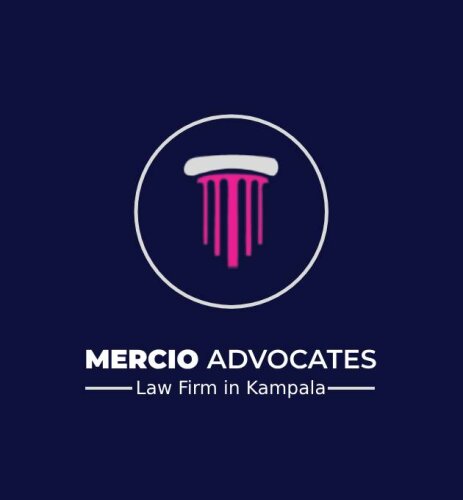Best Appeal Lawyers in Uganda
Share your needs with us, get contacted by law firms.
Free. Takes 2 min.
Or refine your search by selecting a city:
List of the best lawyers in Uganda
About Appeal Law in Uganda
The legal framework governing appeals in Uganda allows parties dissatisfied with a court judgment to seek a review from a higher court. The appeal process is critical in ensuring justice and fairness in the legal system. It enables an aggrieved party to challenge the decision of a lower court, should they believe there was an error in the application of the law, or misunderstandings of the facts of their case. Appeal processes can occur in various courts, including the High Court, Court of Appeal, and Supreme Court, depending on the case complexity and the original court of jurisdiction.
Why You May Need a Lawyer
Understanding the appellate procedure is crucial, and legal representation can significantly affect the outcome of an appeal. Common situations where a lawyer may be necessary include, challenging procedural errors in the lower court's decision, when new evidence has emerged, or when a party believes there was an incorrect application of the law. Lawyers can assist in ensuring that all procedural requirements are met and can effectively argue a case in appellate court, maximizing the chance of a successful outcome.
Local Laws Overview
Ugandan law requires that an appeal be lodged within a specific time frame, typically within 14 to 30 days depending on the case type. Key aspects include filing a notice of appeal, preparing a written submission detailing the grounds of the appeal, and potential oral arguments in the appellate court. The appellate court reviews the accuracy of the lower court's decision without considering new evidence. Knowing the specific procedural rules and limitations of each court is crucial, as improper submission can result in dismissal.
Frequently Asked Questions
What is the first step in filing an appeal?
The first step is to file a notice of appeal with the original court indicating your intent to seek a review of its decision.
How long do I have to file an appeal?
Typically, you must file an appeal within 14 to 30 days after the lower court's decision, depending on the nature and court of the case.
Can I introduce new evidence in an appellate court?
No, appellate courts generally do not accept new evidence. They review the original case record to decide if the lower court made an error.
What are my chances of winning an appeal?
Your chances depend on the specifics of the case, the grounds for appeal, and adherence to procedural requirements. An experienced lawyer can provide a realistic assessment.
Can any decision be appealed?
Not all decisions are appealable. Some judgments may be final or require permission to appeal, such as interlocutory orders.
What role does an appellate court play?
An appellate court reviews the application of the law by lower courts without retrying the case or considering new evidence.
How long does the appeal process take?
The duration can vary significantly depending on the specific circumstances and the court's schedule, often taking several months or even years.
What happens if an appeal is successful?
If an appeal is successful, the appellate court may reverse or modify the decision. It might also order a retrial in the lower court.
Can I appeal in the case of a guilty plea?
Challenging a guilty plea can be difficult, but it might be possible if you can prove the plea was made under duress or without adequate legal representation.
Is it mandatory to have a lawyer for an appeal?
While it's not mandatory, having legal representation is advisable due to the complex nature of appellate procedures and legal nuances.
Additional Resources
For those seeking more information, the Uganda Law Society, the Judiciary of Uganda's website, and legal aid organizations like the Legal Aid Clinic or the Public Defender's Office can be invaluable resources. They provide additional support and information regarding the appeal process and may assist those unable to afford private legal counsel.
Next Steps
If you believe you require legal assistance with an appeal, your first step is to consult with a lawyer experienced in appellate law. They can advise you on the merits of your case and help navigate the complex procedural requirements. It's crucial to act promptly to ensure all deadlines are met and legal rights are protected. Researching and consulting resources such as the Uganda Law Society can also provide initial guidance and connections to reputable legal professionals.
Lawzana helps you find the best lawyers and law firms in Uganda through a curated and pre-screened list of qualified legal professionals. Our platform offers rankings and detailed profiles of attorneys and law firms, allowing you to compare based on practice areas, including Appeal, experience, and client feedback.
Each profile includes a description of the firm's areas of practice, client reviews, team members and partners, year of establishment, spoken languages, office locations, contact information, social media presence, and any published articles or resources. Most firms on our platform speak English and are experienced in both local and international legal matters.
Get a quote from top-rated law firms in Uganda — quickly, securely, and without unnecessary hassle.
Disclaimer:
The information provided on this page is for general informational purposes only and does not constitute legal advice. While we strive to ensure the accuracy and relevance of the content, legal information may change over time, and interpretations of the law can vary. You should always consult with a qualified legal professional for advice specific to your situation.
We disclaim all liability for actions taken or not taken based on the content of this page. If you believe any information is incorrect or outdated, please contact us, and we will review and update it where appropriate.
Browse appeal law firms by city in Uganda
Refine your search by selecting a city.

















